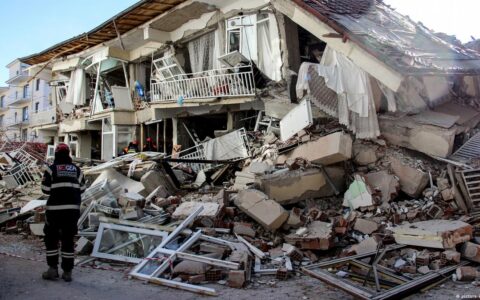
“We live in a magical world”, says an old Greek ballad, a true paradise, with every corner fascinating not only us who inhabit it, but also its thousands of visitors. A crossroads of three continents, in addition to the beautiful mountains, plains and hundreds of islands, unfortunately it also has 157 active seismic faults, which make it one of the most earthquake-prone countries in the world.
From 1959, the first Anti-Seismic Building Regulation was drawn up, which has been revised whenever necessary.
But that is not enough. We should also be informed and prepared to deal with this unexpected natural phenomenon.
On one hand we have to secure our homes and our work and on the other hand we have to take the appropriate protection measures for our safety when “Enceladus” wakes up.
What to do in case of an earthquake – BEFORE
Protective measures that should be taken so that in the event of an earthquake we have the smallest possible consequences.
- Check that shelves and furniture that can move or fall, are well secured to the wall.
- To avoid injuries, remove pictures and heavy objects above beds and settees. Light fixtures must be well secured.
- Any fuel tanks, water heaters or solar panels in the building must be secured.
- Put the heaviest and most fragile objects on low shelves and cupboards to avoid both injuries during the earthquake and also possible blockage of exits.
- It is extremely important to have a first aid kit and a flashlight somewhere handy.
- Seek out safe places, in advance, both at home and place of work.
- Human life comes first but EARTHQUAKE INSURANCE is important to protect and rebuild your home if it’s damaged.
What to do in case of an earthquake – DURING
In the event of an earthquake
Indoors:
- Remain calm and don’t run out of the building
- Move away from any glass surfaces e.g. windows, glass partitions and objects that may cause injuries.
- Take cover under a table or a desk. Kneel down and hold the leg of the table with your hands.
- If there is nothing to protect you, kneel in the center of the room, reducing your height as much as possible and protect your head and neck with arms and hands.
- Avoid balconies and elevators.
In a crowded public place:
- Remain calm and be careful not to be trampled on with everyone trying to get to an exit.
- Stay in the area until the vibration ends and avoid escalators and elevators.
In an open space:
- kneel and protect your head and neck with arms and hands
- Do not run nor sit near buildings, electricity poles or under cables.
Driving:
- Take refuge in an open space and stop the car somewhere that does not obstruct traffic.
- Avoid going through tunnels, bridges or overpasses.
What to do in case of an earthquake – AFTER
What do we do once the earthquake stops?
- Once again remain calm.
- Prepare for any aftershocks. They may be of a lesser power, but they may contribute to further property damage.
- Check yourselves and those around you for possible injuries. If there are seriously injured people, do not move them.
- Evacuate the building from the staircase (we do not use the elevator), after first turning off the supplies to electricity, gas and water.
- Take refuge in an open safe space.
- Follow instructions from the Authorities.
- Do not use your vehicle unnecessarily so as not to inhibit the work of rescue teams.
- Use phones only in emergency so as not to overload the telephone networks.
- Avoid entering your home if there is any structural damage, cut cables or gas leaks.
- As a second phase, later, record property damage and/or injuries and contact your Insurance agent to inform them and make a statement. They in turn will inform you of the procedure that should be followed to initiate the compensation process.
For more information on house insurance in the case of an earthquake click here.